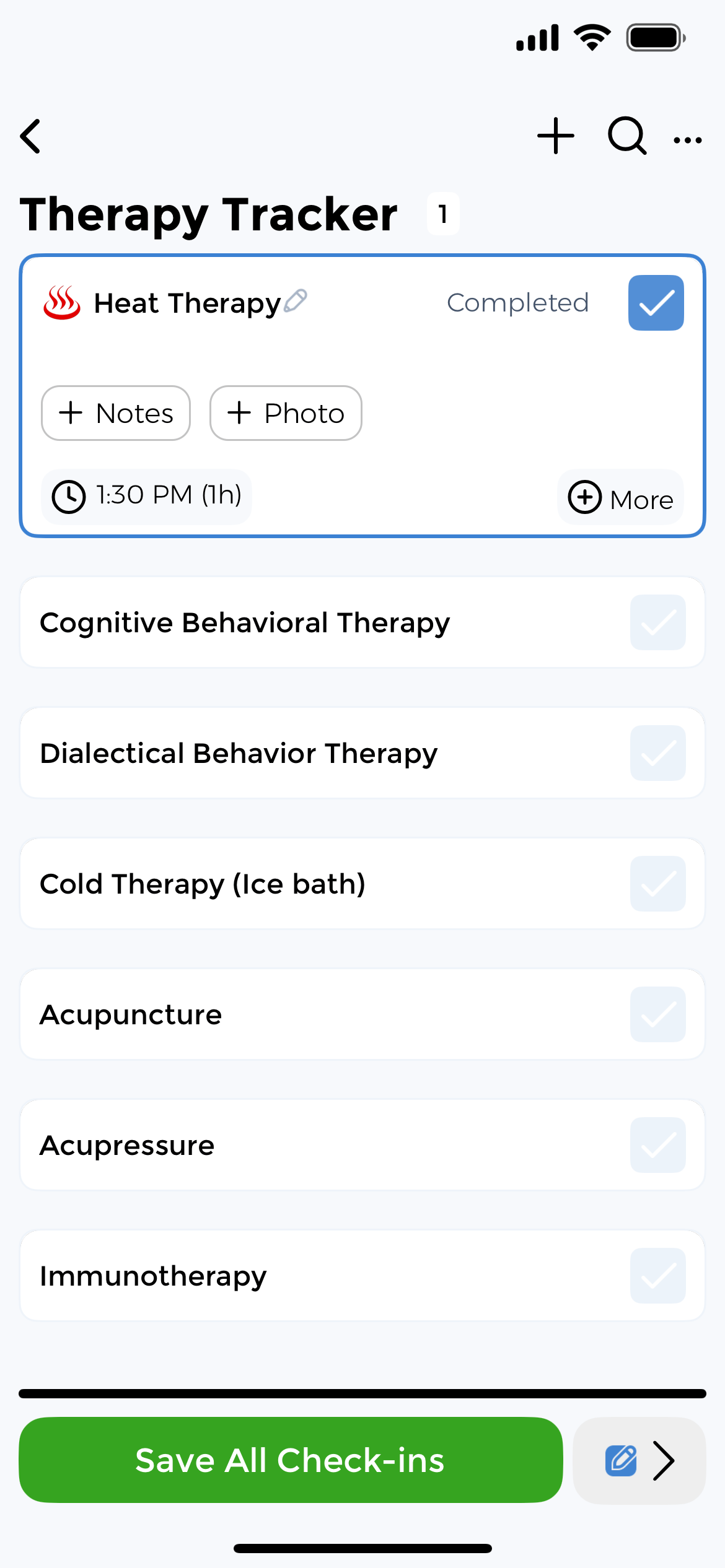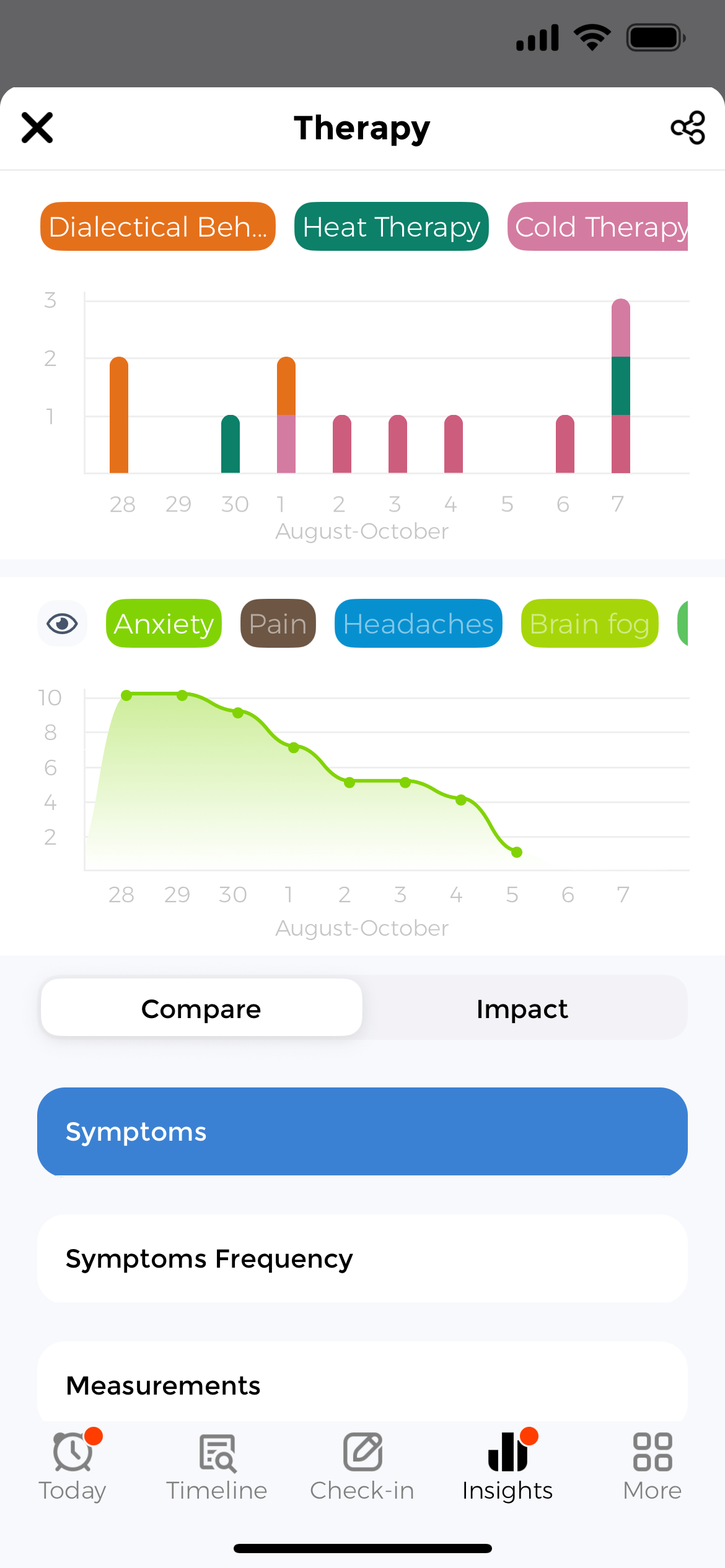Therapy Tracker
Track all therapy types, from mental health to physical therapy to alternative treatments.
The CareClinic app tracks therapies to help you build consistency, document adherence for insurance, and discover which approaches improve your health.

One Log for All Therapies
Whether it’s talk therapy, physical therapy, or complementary treatments, log it all.
Plus Many More • Or Add Your Own
Quick Check-Ins. Smart Organization.
Create custom groups and organize by time or treatment type.
How It Works
1. Add Your Therapies
Create entries for each therapy type you’re receiving. Include therapist names, session length, and frequency for complete tracking.
2. Log Sessions Instantly
One-tap check-in when you complete a session. Add notes, photos, or your usual time of day for context without slowing you down.
3. Track Progress & Share
View session frequency, streaks, and outcome correlations. Export reports for insurance or providers to support your care.
Build consistency. Document adherence.
Understanding which therapies work best for you gives you control over your recovery. Track attendance patterns and see which treatments produce the best outcomes.
Insurance Documentation
Automatic session logs provide proof of treatment for insurance claims, disability applications, and prior authorization requests.
Show Provider Commitment
Visual attendance records demonstrate adherence, helping therapists trust your engagement and adjust treatment plans effectively.
Identify What Works
Correlate therapy types with outcome improvement to see which modalities give you the best results for your health goals.
Build Accountability
Streak tracking motivates consistent attendance. Visual progress records help you stay committed to your treatment plan.
Coordinate Multiple Providers
If seeing multiple therapists, keep all sessions in one unified log instead of scattered appointment cards.
Manage Chronic Conditions
Track therapy for chronic pain, anxiety, depression, PTSD, or long-term rehabilitation to identify treatment patterns that reduce symptom severity over time.
Ready to track your therapy journey?
Stop wondering if therapy is working and start seeing data-driven proof of which treatments improve your symptoms. Track free and get insurance-ready reports instantly.
See which therapies help.
Data-driven insights reveal what’s working and what’s not worth the copay. Unlike basic appointment trackers, CareClinic correlates therapy attendance with health changes to show real therapeutic impact.
- Statistical correlation between therapy frequency and outcome improvement
- Compare different therapy modalities side-by-side to find what helps most
- Export visual reports to share with prescribing doctors for treatment adjustments
- Filter by time period to see short-term vs. long-term therapeutic impact
Track exactly how you receive treatment.
Multi-modal therapy support with seamless timeline integration.
Real Success Stories
Discover how others improved therapy adherence and tracked treatment effectiveness.
I was doing PT twice a week and seeing a therapist every Thursday. After logging for 3 months, I noticed my anxiety improved more when I combined talk therapy with morning exercise. My therapist used my attendance log to adjust our treatment plan, and I’m seeing much better results now.
Jessica L.
Recovery & Mental Health • Using CareClinic for 6 months






